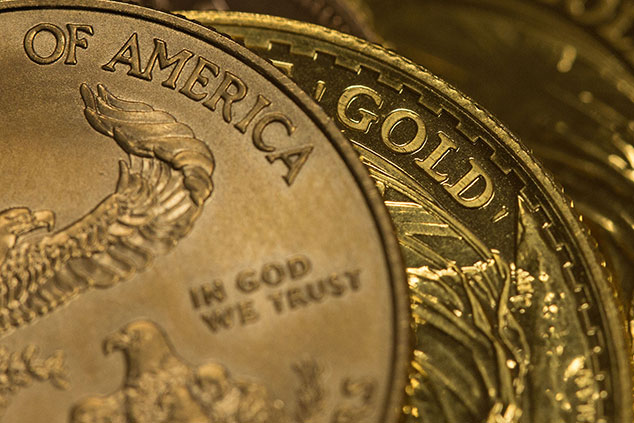
This article is taken from our FREE daily investment email Money Morning.
Every day, MoneyWeek’s executive editor John Stepek and guest contributors explain how current economic and political developments are affecting the markets and your wealth, and give you pointers on how you can profit.
I don’t know if you can exorcise a bugbear, but that’s what I plan to do in today’s Money Morning. To mix another metaphor, I’m going to get a demon off my chest.
Specifically, the axe I have to grind – sorry – is with the way dates and data get misused to further an argument.
The trigger for this was reading the latest monthly report on gold from a well-known alternative asset manager.
Which is best – gold or stocks? It depends on the date
The report is authored by one of the company’s senior portfolio managers. He makes the argument that all fund managers should be making allocations to gold (something with which I agree).
The first reason he cites for doing this is that: “Gold has been the best performing global asset for 18 years”. Three lines later, in bold, he reiterates this point: “the single best performance of any global asset for 18 years running”.
Now, he may well be correct in that. It is possible to find assets that have beaten gold – bitcoin, for example – but that has only been around since 2009, so perhaps it doesn’t count.
The point is that it’s true that gold has done very well over those 18 years. On the first trading day of January, 2001, gold was $274 per ounce. Today it is $1,285 – 4.7 times higher.
Compare that to US stocks. In January 2001, the S&P 500 was 1,340. Today it is 2,782 – little more than twice the price it was.
But here’s the problem I have: it’s the arbitrary use of that date – 1 January, 2001 (or the first trading day of that year).
Why don’t we take January 2011 as a start date instead? Gold began that year at $1,420 an ounce. It has not only gone nowhere over the ensuing eight years, it is actually down by $35.
The S&P 500, on the other hand, was sitting at 1,255, so it is 2.2 times higher.
So since January 2011, gold has been pants.
Or why don’t we take January 1980? Gold began that year at $566 an ounce. It’s about 2.5 times higher today. The S&P 500, on the other hand, was 106. Today it is more than 25 times higher!
So, yes, gold may have been the best asset class to own over the last 18 years. But over the last eight years it has stunk. And over the last 39 years it has been totally eclipsed by the S&P 500.
Between 2001 and 2011, however, gold eclipsed the S&P 500.
So which is the better asset – gold or the S&P 500?
The stupidity of saying one asset is “better” than another
The point is, It’s a ridiculous question. There are times when one outperforms the other, and there are times when it is the other way round.
Being told that you should buy gold because over the last 18 years it has eclipsed the S&P 500 is as meaningless as being told that you shouldn’t buy bitcoin because since its high at $20,000 in December it has fallen by over 80%. Or that you should buy bitcoin because since its low in November 2010 at around $0.001, it is up almost four million times.
All these arguments depend on what you choose as your start date. January 2001, and January 2000 even more so, tend to get used a lot as they are the start of the century. But they also happen to be close to the lows of a 20-year bear market in gold, and not far off the highs of a secular bull market in stocks.
January 2011, on the other hand, was not far off the highs of a secular bull market in gold and barely two years into what would prove to be an epic bull market in S&P 500.
I think you get my point. It’s all rather arbitrary.
The problem I now have with this particular manager’s gold report is that I am now cynical when I read the rest of his thoughts, when in fact a lot of the later arguments he makes for gold are actually quite sound.
That said, they’re largely based around the US fiscal position. And that has looked precarious ever since I started writing this column 13 years ago (is it really that long?). The extraordinarily high level of US government debt is one of those things that never seems to matter.
One day we are going to wake up and it suddenly will. The question though, is whether that will be in my or my grandchildren’s lifetime. (They haven’t even been born yet).
So there we have the message of today’s Money Morning: beware when people tell you that one asset is “better” than another. There are times for one, and there are times for the other. Sensible diversified portfolio allocation will mean that you should have all bases covered: so that when, say, gold has its summer, or bonds, or stocks, you have some exposure; but when they have their winter you are not too badly hit.
If on the other hand you are out to make fortunes, or you have extraordinary market timing skills, then perhaps diversification is not for you. If you focus on specific assets in a bull market, and you are able to exit before the bear grips, then that is the way to make extraordinary gains.
The downside, however, it that if you don’t get out, you make extraordinary losses as well.